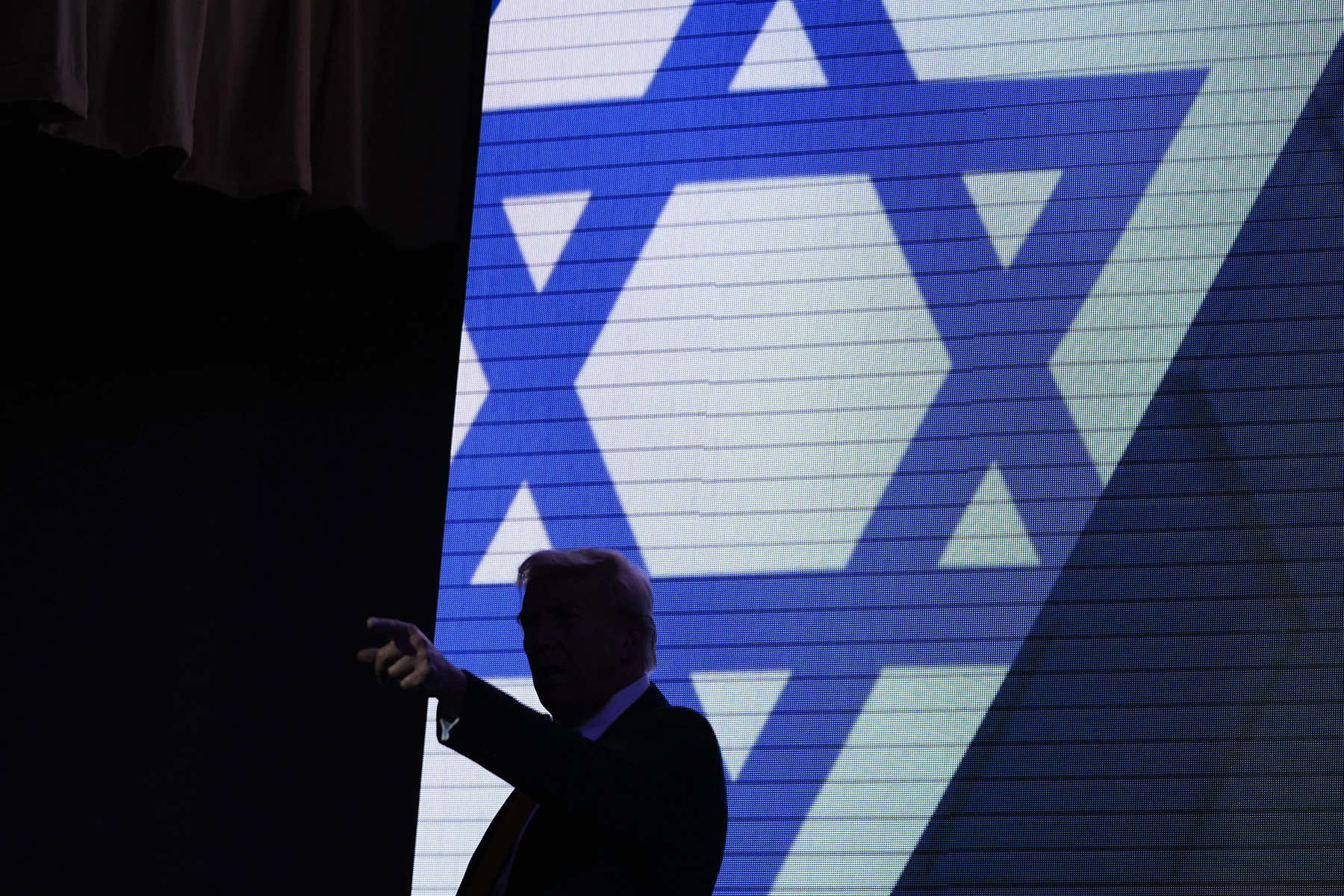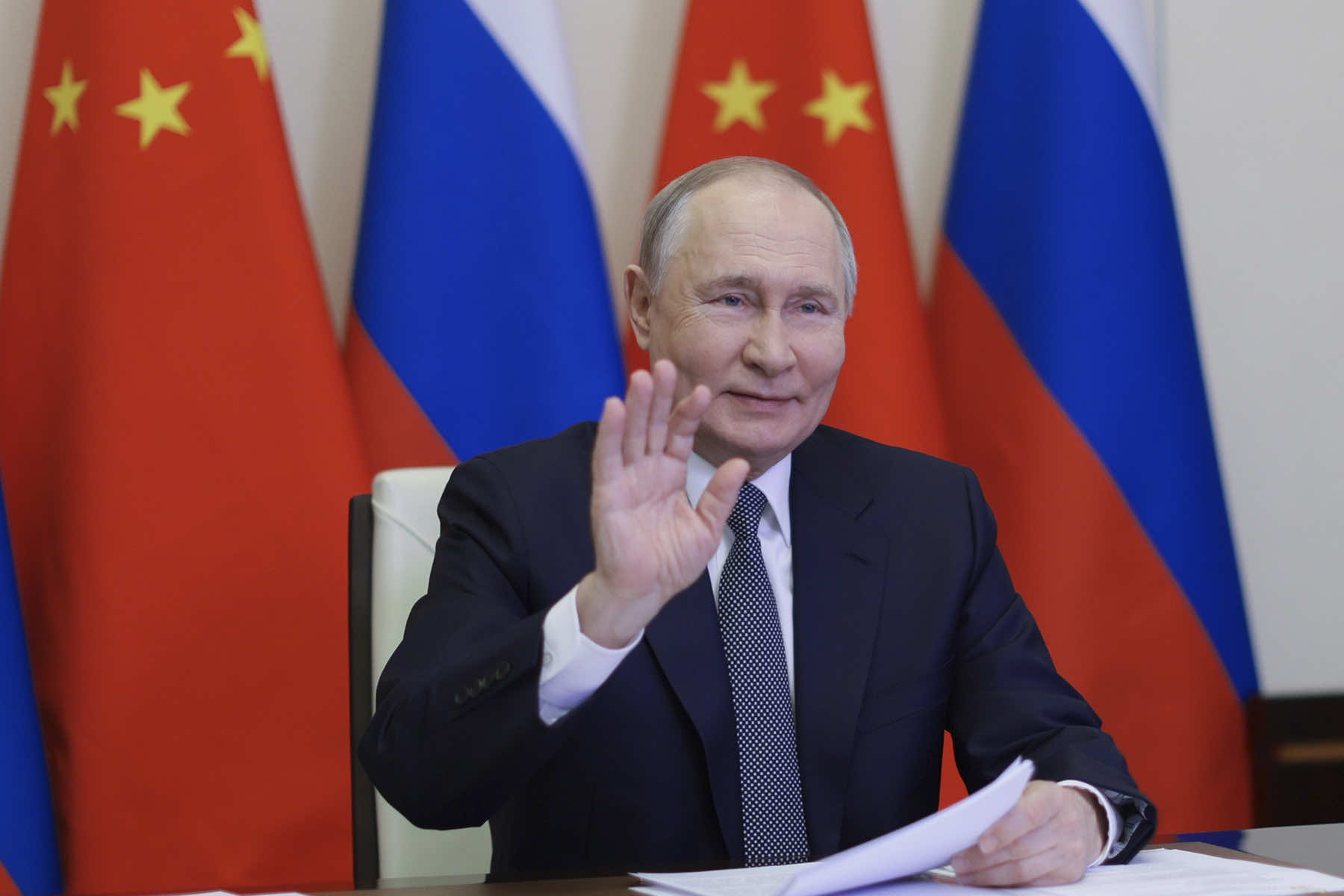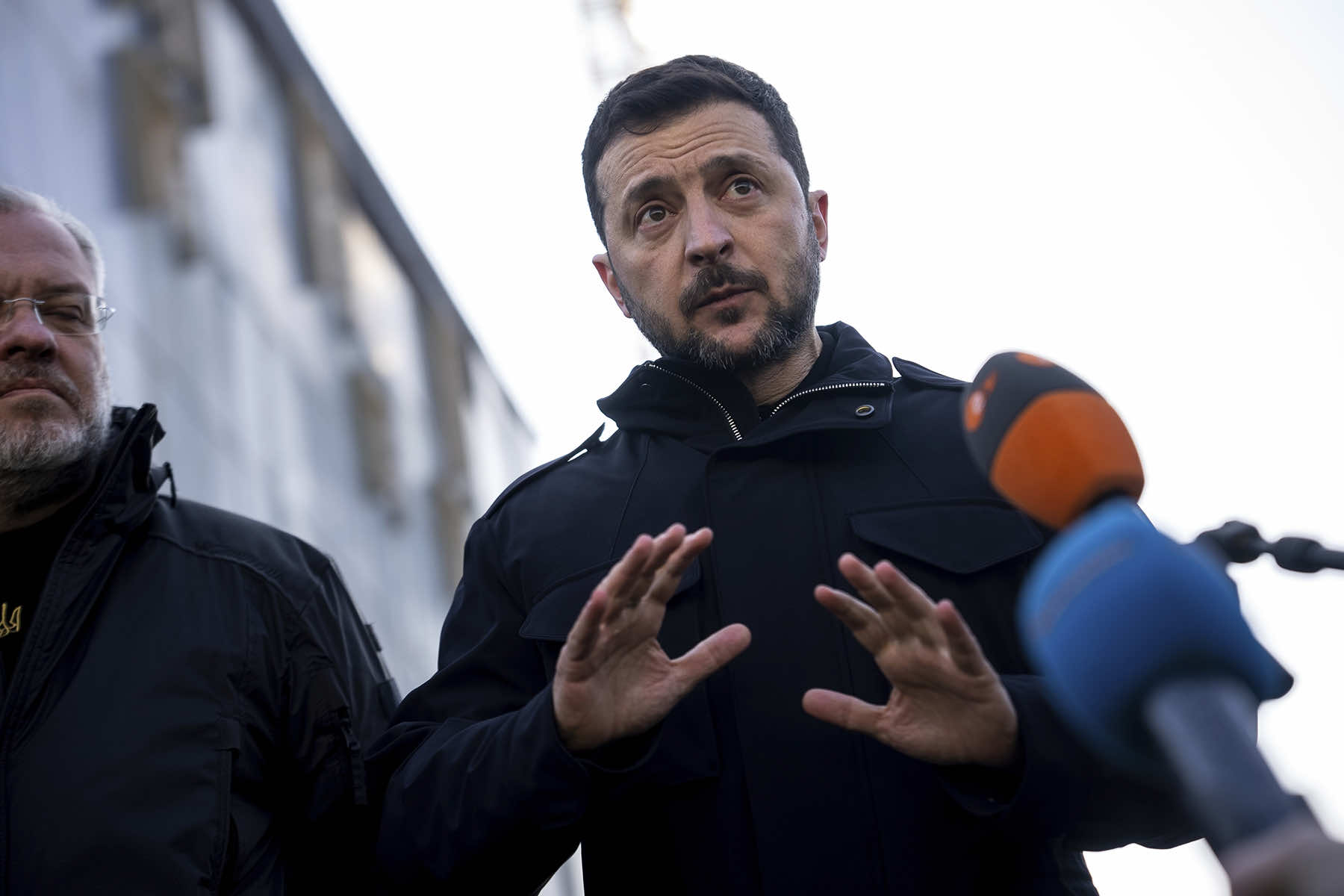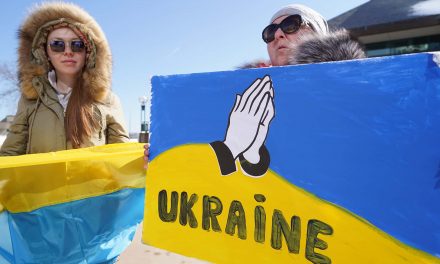
Donald Trump has repeatedly made headlines for his unpredictable alliances and frequent criticism of those who oppose him. One figure who has found himself in Trump’s crosshairs was Ukrainian President Volodymyr Zelenskyy.
Observers have pointed to a range of reasons for Trump’s animosity toward President Zelenskyy, including a deep admiration for Russian dictator Vladimir Putin, whose authoritarian style Trump often praises. Yet there is a troubling possibility that antisemitism also plays a role in Trump’s attacks on President Zelenskyy, who is Jewish and embodies values that seem to clash with Trump’s approach to power.
LONGSTANDING NEGATIVE POSTURE
Trump’s contentious relationship with President Zelenskyy dates back to his first term in office. In 2019, a phone call between the two leaders led to Trump’s first impeachment by the House of Representatives on charges of abuse of power and obstruction of Congress. The call was widely interpreted as an attempt by Trump to pressure President Zelenskyy into launching investigations that would benefit him politically. While that episode occurred years ago, it established the antagonistic dynamic that continues during Trump’s current occupation of the White House.
The question now is why Trump persists in haranguing President Zelenskyy. Some say it is political theater aimed at cultivating support from domestic audiences who prefer an “America First” stance. Others suggest it reflects Trump’s desire to maintain a warm relationship with authoritarian leaders, such as Putin.
Yet more unsettling is the notion that Trump’s hostility might be influenced by President Zelenskyy’s Jewish heritage, a possibility heightened by Trump’s record of using language that critics view as having antisemitic undertones.
ADMIRATION FOR PUTIN’S STRONGMAN TACTICS
For years, Trump’s regard for Putin has raised eyebrows around the world. He has spoken glowingly of the Russian strongman’s tactics, praising him for his “toughness” and “strength.” Such commendations stand in stark contrast to the values President Zelenskyy promotes: democracy, human rights, and collaboration with allies.
Ukraine’s ongoing war resulting from Russia’s full-scale invasion has propelled President Zelenskyy onto the global stage. He has appealed for help from Western nations, embraced unity in the face of aggression, and exemplified many of the democratic principles that run counter to Putin’s methods.
Trump’s repeated disparagement of President Zelenskyy is perplexing, if Americans were to assume that the United States should champion democracy in the face of authoritarian aggression. Why deride the leader of a country resisting a Russian invasion while simultaneously lauding the leader of that invading nation?
Some suggest Trump sees in Putin the kind of undiluted power he desires for himself, power that has no checks and balances. President Zelenskyy, by contrast, operates within a constitutional framework that emphasizes accountability and unity. Trump’s critical view of President Zelenskyy could reflect a deeper preference for governance unfettered by democratic constraints, and it may also offer a clue about how Trump views minority leaders who challenge his worldview.
CONTRADICTORY CLAIMS OF SUPPORT FOR JEWISH PEOPLE
Trump has claimed many times to be a supporter of Jewish interests, often citing his decision to move the U.S. Embassy in Israel from Tel Aviv to Jerusalem during his first presidency as a prime example of this commitment. He references Jewish family members and touts strong ties with Israeli leaders. Yet those statements are frequently at odds with other remarks and actions.
On March 19, 2024, Trump charged that Jews who vote for Democrats “hate Israel” and hate “their religion,” which ignited a firestorm of criticism from Jewish leaders during the presidential campaign.
In an interview, Trump had been asked about the growing criticism of Israeli Prime Minister Benjamin Netanyahu by Democrats over his brutal handling of the war in Gaza as the massive civilian death toll continued to mount.
“I actually think they hate Israel,” Trump responded to his former aide, Sebastian Gorka. “I think they hate Israel. And the Democrat party hates Israel. Any Jewish person that votes for Democrats hates their religion. They hate everything about Israel, and they should be ashamed of themselves because Israel will be destroyed.”
The vast majority of Jewish Americans identify as Democrats, but Trump has often accused them of disloyalty, perpetuating what critics say is an antisemitic trope.
Trump has also retweeted, on multiple occasions, accounts known for peddling antisemitic or White Supremacist content. His refusal to fully disavow those endorsements or claim ignorance of the messages promoted by the sources has led many to believe he is indifferent to the bigoted views found in parts of his political base.
Since returning to the presidency, Trump has made little effort to rein in divisive or discriminatory language. He continues to attract support from far-right groups and conspiracy theorists who sometimes harbor antisemitic beliefs. Critics argue that, at minimum, he has not done enough to discourage or condemn these sentiments.
A PATTERN OF TARGETING MARGINALIZED COMMUNITIES
Trump’s troubling rhetoric is not limited to the Jewish community. He has singled out various minority groups over the years, using polarizing language that his critics say emboldens extremist views. From derogatory references to Mexican immigrants to harsh travel bans that targeted primarily Muslim nations, Trump’s approach is often described as toxic and divisive.
His remarks following the 2017 Unite the Right rally in Charlottesville, Virginia, where neo-Nazis and White Supremacists marched openly, are often cited as a pivotal moment. When he said there were “very fine people on both sides,” critics accused him of failing to unequivocally denounce hate groups – who specifically attacked Jews. His perceived ambivalence set a tone that continues to this day, encouraging extremists to believe they have a place in the political mainstream.
In President Zelenskyy, Trump appears to have found a new target whose personal identity adds another layer to the criticism. While Trump has not explicitly stated that he disapproves of President Zelenskyy’s Jewish heritage, the broader context of Trump’s track record on Jewish issues makes it plausible that antisemitism could be an underlying factor.
PRESIDENT ZELENSKYY’S LEADERSHIP AMID CRISIS
President Zelenskyy emerged as the leader of Ukraine with a vision of strengthening democracy, championing civic engagement, and emphasizing the rights of all citizens. The fact that he is Jewish carries symbolic weight in a region historically scarred by pogroms, prejudice, and authoritarian encroachment.
By confronting Russian aggression head-on, President Zelenskyy has drawn global admiration. He has stood as a figure of unity, urging other nations to support Ukraine’s sovereignty. This stance naturally puts him at odds with Putin, someone Trump praises. Each time Trump elevates Putin, or downplays the seriousness of Russia’s actions, he effectively undermines a Jewish leader who has become the face of a democratic struggle.
Although Trump’s statements about President Zelenskyy and Ukraine may not be overtly antisemitic, the recurring questions about his rhetoric toward Jewish figures or institutions fuel speculation. Critics assert that if Trump were genuinely committed to championing Jewish people, he would not attack the Jewish leader of a nation fighting to uphold its territorial integrity and democratic governance.
EXPOSING ANTISEMITIC TIES AND DOG WHISTLES
Trump’s allies sometimes engage in dog-whistle politics, which use coded language that resonates with certain segments of his right-wing base, often including those who hold antisemitic beliefs, without being so blatant as to alienate more moderate voters. Such political tactics create a climate in which hostility toward Jewish individuals or communities can flourish.
Instances of violence against Jews and other minorities have risen in recent years, with watchdog organizations recording spikes in hate crimes. While direct responsibility cannot be pinned on any single politician, leadership and rhetoric at the highest levels can either quell or encourage such bigotry. Trump’s reluctance to sever ties with extremist supporters who engage in antisemitic speech has been widely noted.
Additionally, Trump’s habit of amplifying conspiracy theories, some of which blame Jewish individuals for global problems or allege sinister plots, has caused alarm. When conspiracy theories flourish unchecked, they feed social and political movements that vilify minorities, sowing division and sometimes inciting violence.
IMPLICATIONS FOR U.S. FOREIGN POLICY
As the elected leader of the United States, Trump wields considerable influence over foreign policy and international perceptions. When he undermines or disparages President Zelenskyy, a democratically elected head of state, he sends signals that weaken the moral authority of the United States. Allies become uncertain about America’s reliability, and adversaries gain strategic leverage when seeing discord in the ranks of Western unity.
If Trump’s hostility toward President Zelenskyy is even partially driven by antisemitic sentiment, the implications are dire. It suggests that personal bias could intrude into decisions about aid, diplomatic relations, and public support for Ukraine’s fight against Russian aggression. Aligning with a dictator instead of an ally grappling with existential threats is a departure from the long-held notion that the United States upholds freedom on the global stage.
CONDEMNATION OF ANTISEMITISM
Antisemitism is a form of hate that must be confronted wherever it surfaces, especially in the highest levels of government. The rise of antisemitic incidents during Trump’s time in public office has been documented by organizations dedicated to tracking hate crimes. Even if Trump argues he bears no direct responsibility, his language and actions have embolden and amplified those who harbor such views.
Americans should expect their leaders to show unwavering opposition to prejudice. When marginalized communities become targets — whether through overt hostility or subtle undermining — the result is a corrosive environment where acts of bigotry can increase. Citizens, lawmakers, and the press should hold Trump accountable whenever he fails to denounce antisemitism, whether it manifests as hateful language, policy decisions that target specific groups or tacit encouragement of extremist supporters.
A CHALLENGE TO DEMOCRATIC PRINCIPLES
The dispute between Trump and President Zelenskyy is about more than two leaders clashing. It reflects a broader conflict between authoritarianism and democracy. President Zelenskyy stands for transparent governance, a principle vital to any healthy democracy. Trump’s pattern of praising rulers who centralize power has underscored the fact that he prefers a world where leaders face fewer restrictions on their authority.
When the leader of the United States aligns himself with a dictator and dismisses or demeans a Jewish president who is defending his nation’s sovereignty, it raises serious questions about the role of antisemitism in shaping these views. It also threatens to damage the global standing of a country that once prided itself on promoting liberty and justice around the world.
There must be no place for antisemitism or bigotry in public office. Language and behavior that legitimize or condone hatred undermine the foundations of democracy itself. Americans deserve better than a leader who criticizes a Jewish head of state while praising an authoritarian government with an extensive record of terror and repression.
A CALL FOR ACCOUNTABILITY
Rejecting antisemitism and any form of hate should be a unifying principle. When suspicion arises that hate may be influencing a president’s policy or messaging, it becomes essential to demand transparency and accountability. Trump’s record on Jewish issues is riddled with examples of questionable statements and overtures to extremist elements. President Zelenskyy’s leadership in Ukraine contrasts sharply with the autocratic approach Trump emulates and admires in his Russian benefactor.
Trump’s attitude toward President Zelenskyy is emblematic of his deeper indifference to democratic ideals and minority rights. By targeting a Jewish president, whether consciously or through passive acceptance of antisemitic dog whistles, Trump has demonstrated his willingness to erode societal norms that protect all citizens. The American people, along with international allies, have a stake in calling out such conduct.
The cost of ignoring this issue is steep. Failure to confront antisemitism at high levels of government allows bigotry to fester. It also signals to predators like Putin that the United States will not stand firmly with nations under attack — especially if their leaders do not align with Trump’s capricious ego and relent to his narcissistic ambitions.
Ultimately, fighting hatred demands vigilance. There is a pressing need to challenge any official who promotes or tolerates antisemitism, either outright or through coded language and associations. Trump’s treatment of President Zelenskyy has brought these issues into sharp focus. Upholding democratic values requires unequivocal condemnation of bigotry, support for leaders threatened by dictators, and a commitment to consistent moral standards in foreign policy.
Where antisemitism is left unchecked, it poses a threat not only to Jewish communities but also to the very principles of equality and justice. Such a clash of ideologies offers a stark reminder that democracy depends on standing against prejudice at every turn. If Trump’s hostility toward President Zelenskyy is rooted even partially in antisemitic bias, it cannot be tolerated. It must be called out, confronted, and condemned by all who believe in a future shaped by mutual respect.
© Photo
Evan Vucci (AP), Gavriil Grigorov (AP), Alex Babenko
















